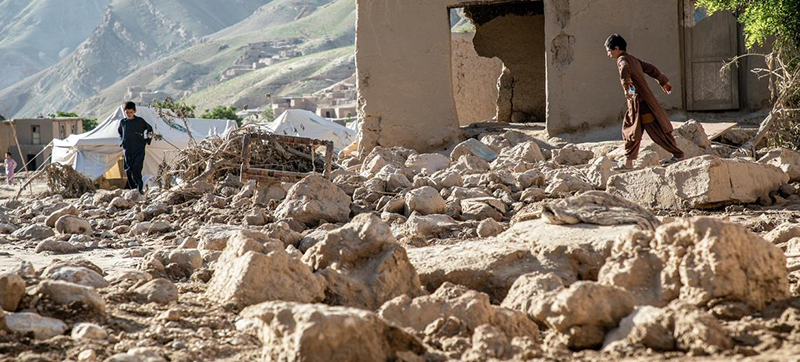 Afghanistan
Afghanistan
UN officials highlight massive poverty, humanitarian despair in Taliban-ruled Afghanistan
The humanitarian needs in Afghanistan are “alarmingly high” and the international community is in “crisis management mode”, the UN Security Council heard on Friday.
Top officials from the UN Assistance Mission in Afghanistan (UNAMA) and the UN Office for the Coordination of Humanitarian Affairs (OCHA) briefed ambassadors at the 15-member Council, describing the impact on civilians since the Taliban took over in August 2021.
Roza Otunbayeva, Special Representative of the Secretary-General for Afghanistan and head of UNAMA highlighted “massive poverty” across the country.
“Afghanistan remains beset by massive poverty that leaves the population even more vulnerable to the many natural disasters that we have seen over the past few years as a result of climate change,” she said.
This is despite over $7 billion in international support for humanitarian assistance and over $4 billion for civilian support since the de facto authority assumed power.
Brain drain
Furthermore, Afghan women civil servants who were told they could not return to work until “necessary conditions” were approved by the Taliban, are now experiencing major salary cuts.
UN Photo/Eskinder Debebe Special Representative Otunbayeva briefs the Security Council.
This provokes concerns over inability to pay rent or to offer familial support.
“These restrictions deprive the country of vital human capital that it needs to implement the Taliban’s own policy of self-reliance,” Ms. Otunbayeva said.
“They contribute to a brain drain that undermines Afghanistan’s future.”
Impact on women and girls
Lisa Doughten, Director of Financing and Partnerships at OCHA, echoed concerns over the situation of women and girls.
“Afghanistan will soon enter its fourth year under the Taliban de-facto authority,” she said, adding: “no one has felt the impact more profoundly than women and girls.”
Further, the de facto authority has restricted girls past the sixth grade from receiving an education – a policy that has been set for over 1,000 days.
The ban, Ms. Doughten said, fuels an increase in child marriage and early childbearing.
It has also led to increase levels of depression and reported suicide attempts in young women and girls.
Climate change woes
Ms. Doughten also underscored that climate change effects, including extreme weather and more frequent and intense droughts, have further complicated the crisis.
UN Photo/Evan Schneider Director Doughten briefs the Security Council.
About 120,000 people were affected by flash flooding and mudslides in several regions in the country. Hundreds were killed, villages were destroyed and tens of thousands of acres of agricultural land devastated.
“Afghanistan remains wholly unprepared to deal with these increasingly persistent threats and will require significant investments in early warning and early response systems,” Ms. Doughten said.
She called for longer-term solutions to help Afghans overcome poverty and adapt to climate impacts.
“Nothing is easy in Afghanistan, but with sustained assistance, we can support people in the realisation of a life with peace, stability and hope.”
A hope to move forward
On 30 June, the UN will host a meeting in the Qatari capital, Doha, to continue discussions over the situation in Afghanistan.
Special Representative Otunbayeva expressed hope that key stakeholders at the meeting will come to an agreement on what can be done to “alleviate the uncertainties” facing Afghan people.
This will only happen if there is great flexibility among stakeholders and “a clearer political willingness on all sides to move beyond crisis management to addressing the larger problems within Afghanistan and among Afghans, and those between Afghanistan and the international community,” she concluded.
Support Our Journalism
We cannot do without you.. your contribution supports unbiased journalism
IBNS is not driven by any ism- not wokeism, not racism, not skewed secularism, not hyper right-wing or left liberal ideals, nor by any hardline religious beliefs or hyper nationalism. We want to serve you good old objective news, as they are. We do not judge or preach. We let people decide for themselves. We only try to present factual and well-sourced news.







